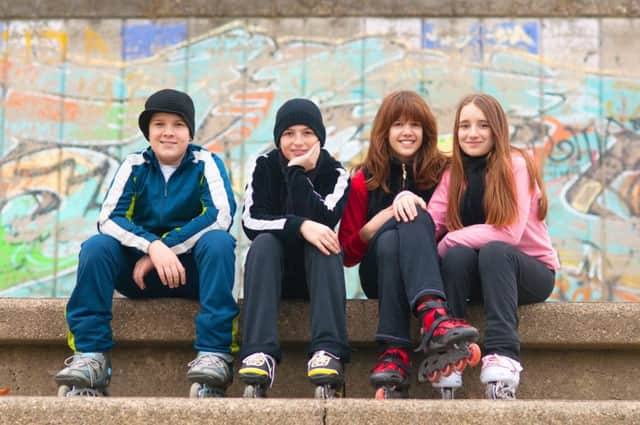Rosanne Cubitt: Kids have opinions too – listen to what they want when a family breaks up


But how do parents agree what is best for children, particularly if they are splitting up under difficult circumstances and they have fundamentally different views about what is best for their children? These disagreements can end up in court with the sheriff or judge charged with making a decision on what’s best – and there are many challenges with ensuring those decisions are made effectively for all concerned.
Should we talk with children about what they think? It is important for children to feel heard and for their experiences and views to be considered. Research shows that most children want to be involved in discussions about decisions that affect them and it is good for all children’s mental health and well-being for them to talk and feel listened to. Listening to children is not about them being the decision maker but it is about them having a voice.
Advertisement
Hide AdAdvertisement
Hide AdArticle 12 of the United Nations Convention on the Rights of the Child (UNCRC) states that children who are capable of forming their own views have the right to express those views freely in all matters affecting them, the views being given due weight in accordance with the age and maturity of the child. Children shall in particular be provided the opportunity to be heard in any judicial proceedings affecting them, either directly or through a representative.
Further compliance with the UNCRC in family court cases and ensuring the views of the child are heard in contact and residence cases are both key policy objectives of the proposed Children (Scotland) Bill 2019 that is currently being debated through parliament.
Relationships Scotland’s network of Member Services work with families who are finding it hard to reach agreement about the future care arrangements for their children. Parents can meet with a mediator who helps them to speak about the issues, focus on what their children need from them and identify possible ways forward that they would be willing to try. This might avoid having a court make the decision, or it may be to work out the practical details of a contact order.
Parents can also be helped with contact arrangements through the use of a Child Contact Centre or by attending a Parenting Apart information session. They might want to work through the emotional impact of relationship breakdown with a counsellor.
Children and young people have the opportunity to meet with a mediator to express their views and have their voices heard and shared with parents who are in mediation. In some areas in Scotland, children and young people can meet with an independent family support worker and can be helped to express their views so that these can be shared with the court.
Relationships Scotland’s Member Services have been providing a way for children to be listened to in the context of divorce and separation since the 1990s and are delighted to be welcoming two international experts in January to run a masterclass for their practitioners on a play-based non-directive, non-evaluative approach to elicit the voice of children.
The approach introduces strategies to provide a child or young person with the opportunity to share freely about their current life experience without the limitation of agendas from parents, or other decision makers.
Jon Graham from Australia and Lorri Yasenik from Canada, co-founders of the International Centre for Children and Family Law, will also be talking to a range of family law professionals at an event in Edinburgh on 16 January, Raising the Voice of the Child in Family Law: A Child Centred Approach. They will present a model that helps to inform the effective inclusion of children in family law processes.
Advertisement
Hide AdAdvertisement
Hide AdThis is particularly important for those engaged with the current debate around the Children (Scotland) Bill 2019, and the policy objectives of ensuring the views of the child are heard in contact and residence cases, ensuring the best interests of the child are at the centre of decision making and further compliance with the UNCRC in family court cases.
There is no one right answer about what is best for children. Children need to be listened to, and arrangements need to attend to the children’s concerns and any safeguarding issues, whilst taking into account the commitments and interests of the parents. Constructive communication and co-operation between parents, where possible, can make a big difference. It needs to be much more about the children and much less about the adults.
To find out more about the support available from the Relationships Scotland network of Member Services, visit www.relationships-scotland.org.uk or call the Info-Line on 0345 119 2020.
Tickets for the event can be found at www.eventbrite.co.uk/e/raising-the-voice-of-the-child-in-family-law-a-child-centred-approach-tickets-80454893753
Rosanne Cubitt, head of practice for mediation, Relationships Scotland.